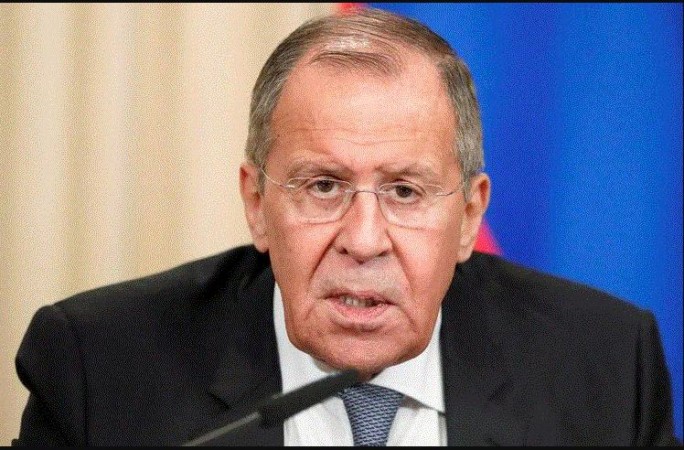
RUSSIA: During talks between their top diplomats and other high-level officials on Tuesday in the South American nation, Russia and Venezuela reviewed some of their hundreds of bilateral agreements spanning the banking, energy, agricultural, and other sectors. Hours after Sergey Lavrov's arrival in the country as the second stop on a tour of four Latin American countries, he and his Venezuelan counterpart Yván Gil conducted a joint press conference in Caracas. Both men swore to continue supporting the other's nation and denounced the financial restrictions Washington had placed on it.
Lavrov said, "We totally back the stance of our Venezuelan allies. "It is their country, and we are going to help it in any way we can so that the Venezuelan economy becomes independent from the pressures of the United States and other western actors," the statement continued. A government-provided translator converted Lavrov's statements from Russian to Spanish.
The hundreds of agreements between the two countries covering the financial, energy, agricultural, and other sectors were reviewed by officials.
Gil and Lavrov, who were due to meet with Nicolás Maduro, the president of Venezuela, said their nations are working on a substitute for SWIFT, the system that facilitates international financial transactions but to which important Russian banks lost access last year. As part of the economic sanctions imposed on Russia at the outset of the war in Ukraine last year, those banks were shut down. Russia is a steadfast backer of the Venezuelan regime, along with China. With its backing, it has avoided the crippling economic sanctions that were intended to force Maduro from office.
Venezuela entered the political, social, and economic catastrophe that has lasted the length of Maduro's administration as a result of a global decline in oil prices in the previous decade and poor government management. The crisis fueled an opposition movement supported by the U.S. government, which under the Trump administration prioritised ousting Maduro from office and used economic sanctions against Venezuela's state-owned energy company to prevent the nation's oil — its most valuable resource — from entering some Western markets.
The Biden administration has eased certain sanctions and made it clear that it is willing to do so in exchange for actions from Maduro, like pledging not to forbid whichever candidate wins the opposition primaries later this year. Gil told reporters, "We have not noticed any easing of the sanctions." The U.S. government has already taken certain corrective measures, such as removing a relative of First Lady Cilia Flores from a list of sanctioned people and allowing oil giant Chevron to resume limited oil production in Venezuela for a trial period of six months. On Monday, Lavrov began his trip of Latin America with a stop in Brazil, where the government of President Luiz Inacio Lula da Silva is attempting to forge connections with China, Europe, and the United States while keeping the door open to Russia. Lula claimed that Russia and Ukraine both bear some of the blame for the conflict during a visit to Dubai.
This week, Lavrov is heading to Nicaragua and Cuba.
Venezuela had built a tight relationship with Russia and made multi-million dollar purchases of helicopters, fighter jets, and Kalashnikov guns before they were brought together by a struggle against economic sanctions.
Ukrainian players will not play with Russia and Belarus, know why